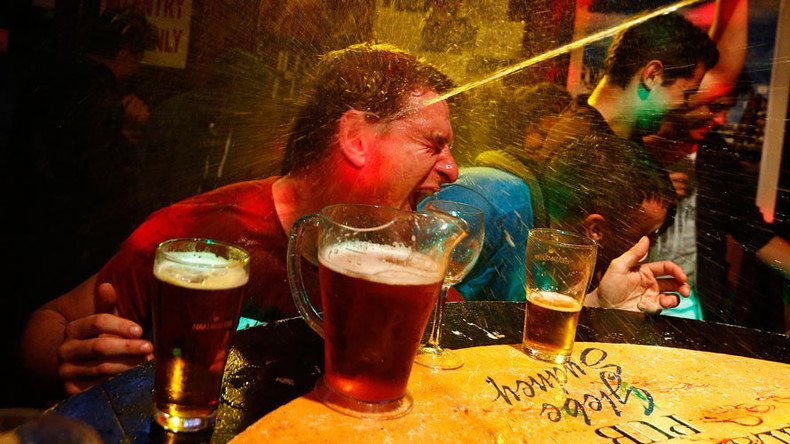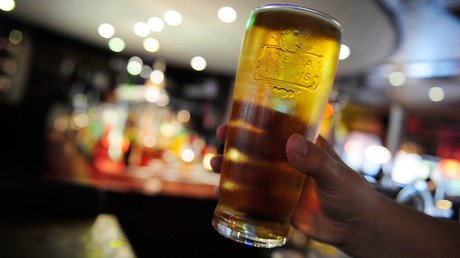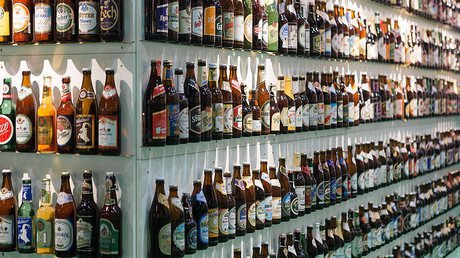All in the mind? Study says being drunk doesn’t change your personality as much as you think

US researchers got a group of test subjects tipsy and asked them and neutral observers to record how their personalities changed. While drinkers thought they turned nicer and more open-minded, outsiders said they became more sociable, but otherwise stayed the same.
Personality May Change When You Drink, But Less Than You Think https://t.co/9TuuCvK5zZ#alcoholpic.twitter.com/JvW4c8cAmu
— APS (@PsychScience) 15 May 2017
"We were surprised to find such a discrepancy between drinkers' perceptions of their own alcohol-induced personalities and how observers perceived them," said Rachel Winograd of the University of Missouri, the lead author of the new study, which has been published in the journal Clinical Psychological Science. "Participants reported experiencing differences in all factors of the Five Factor Model of personality, but extraversion was the only factor robustly perceived to be different across participants in alcohol and sober conditions."
The 156 people recruited for the study were invited into the lab in friend groups of three or four, with half given enough vodka and Sprite to reach a blood alcohol of .09 – equivalent of five shots for a 90kg man – and the others just the lemonade as a placebo.
Once breathalyzed, the participants were given group activities such as puzzles and discussion questions, during which they displayed their personalities. They were also asked to describe their own 'drunk personality' throughout the experiment.
The drinkers said alcohol made them less conscientious, more open to new experiences, more agreeable, less neurotic and more extraverted.
Videos of the interactions were then shown to professional – and sober – outside raters, who noted that the only visible change in behavior was in facets of extraversion: gregariousness, assertiveness, and levels of activity.
Winograd believes that the chief explanation is that alcohol changed how people felt about themselves, but not necessarily how they presented themselves.
"We believe both the participants and raters were both accurate and inaccurate – the raters reliably reported what was visible to them and the participants experienced internal changes that were real to them but imperceptible to observers," she explained in a press release put out by the Association for Psychological Science, the publisher of the journal that printed the study.
Other theories are possible, however – perhaps participants were experiencing a degree of placebo effect, and their expectations of drunkenness outpaced the doses they actually consumed.
Or if the test subjects had been given enough alcohol to become genuinely drunk – rather than tipsy – their personality changes could have become as obvious and substantive to the observers, as to the participants.
It’s also plausible that people were simply holding themselves back outwardly in a lab setting, even as the alcohol reached their brains.
"Of course, we also would love to see these findings replicated outside of the lab – in bars, at parties, and in homes where people actually do their drinking," explained Winograd, who has published dozens of papers on social and psychological effects of alcohol. "Most importantly, we need to see how this work is most relevant in the clinical realm and can be effectively included in interventions to help reduce any negative impact of alcohol on peoples' lives."














